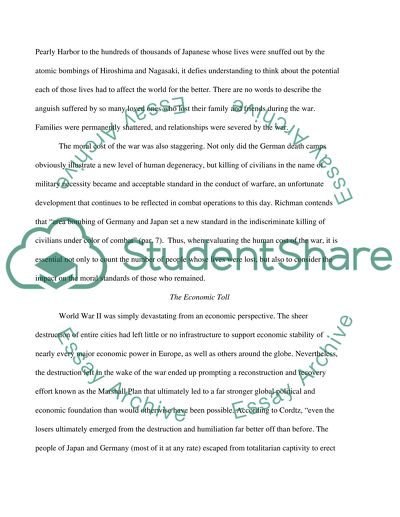Cite this document
(“The Aftermath of World War II Essay Example | Topics and Well Written Essays - 1000 words”, n.d.)
Retrieved from https://studentshare.org/miscellaneous/1500815-the-aftermath-of-world-war-ii
Retrieved from https://studentshare.org/miscellaneous/1500815-the-aftermath-of-world-war-ii
(The Aftermath of World War II Essay Example | Topics and Well Written Essays - 1000 Words)
https://studentshare.org/miscellaneous/1500815-the-aftermath-of-world-war-ii.
https://studentshare.org/miscellaneous/1500815-the-aftermath-of-world-war-ii.
“The Aftermath of World War II Essay Example | Topics and Well Written Essays - 1000 Words”, n.d. https://studentshare.org/miscellaneous/1500815-the-aftermath-of-world-war-ii.


